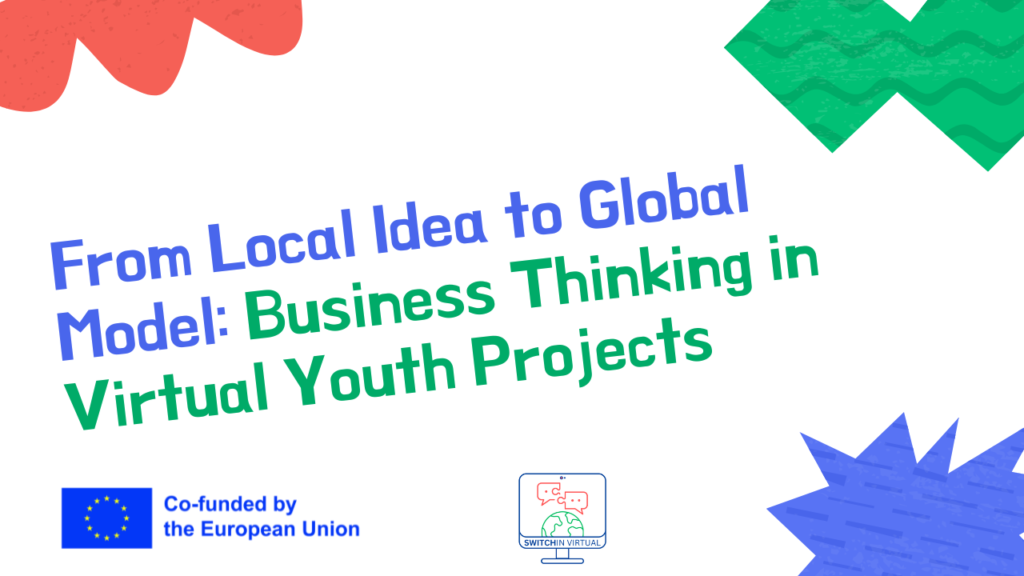
When people hear the word “business model,” they often think of start-ups, investors, and profit margins. But in reality, a business model is simply a structure—a way of explaining how an idea creates value, sustains itself, and grows.
That’s why SWITCHIN Virtual places business thinking at the core of its Upskilling Labs. Not because every young person needs to start a company, but because every project—whether a social campaign, a cultural initiative, or a youth exchange—needs a model that makes sense.
Business models give shape to vision. Without them, ideas remain abstract, exciting in theory but fragile in practice. With them, projects gain clarity:
- What is the purpose?
- Who benefits?
- What resources are needed?
- How will the project continue after the initial energy fades?
For youth working across Portugal, Spain, the Netherlands, Kosovo, Montenegro, and Albania, this mindset is especially powerful. It teaches that collaboration isn’t just about sharing ideas—it’s about creating systems that last.
Virtual exchanges are a perfect training ground. They encourage participants to move from brainstorming to structure. A cross-border campaign on recycling, for example, becomes not just a slogan but a plan: identifying audiences, tools, and partners. A cultural project can grow from a single online meeting into a model for sustainable, replicable action.
The lesson is simple: ideas matter, but without a model they risk disappearing. By learning to frame their projects in business terms—clear goals, clear value, clear pathways—young people learn to think beyond the moment.
This isn’t about profit. It’s about sustainability. It’s about ensuring that good ideas don’t vanish once the workshop ends. It’s about giving youth the tools to turn passion into impact, and impact into change.
In SWITCHIN, “business” doesn’t mean corporate—it means practical. It means treating youth ideas with the seriousness they deserve. Because when a project has structure, it has a future.
